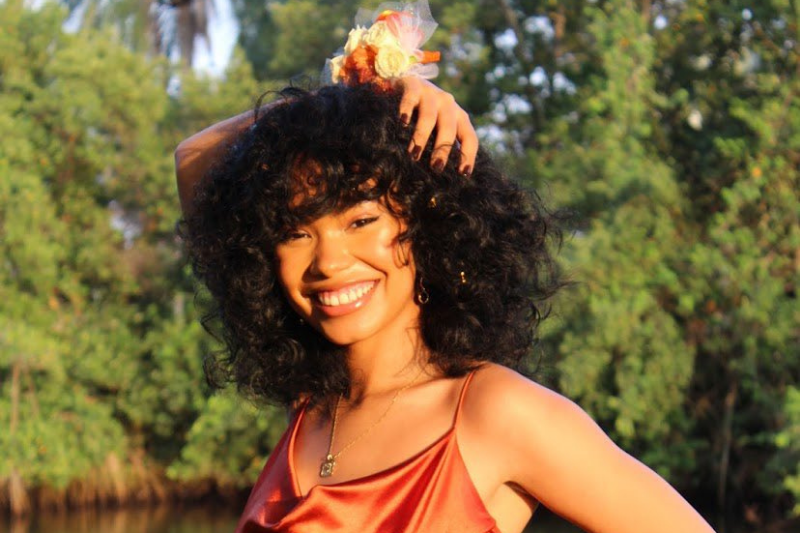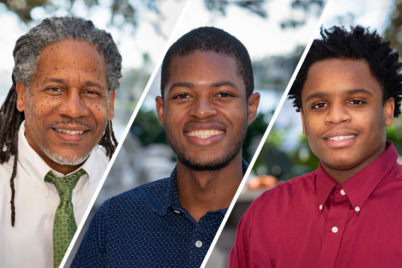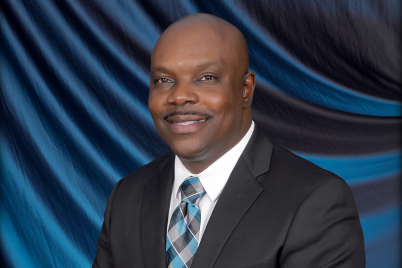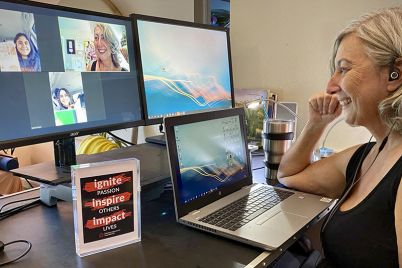Lyrik Shikany just graduated from St. Petersburg High School and is a social media influencer.
BY YAMIRA PATTERSON, St. Petersburg High School student
Lyrik Shikany just graduated from St. Petersburg High School and is a social media influencer. She sat down with me to discuss anti-Blackness throughout her academic career.
YAMIRA: What are some of your experiences with racism and anti-Blackness in your school or past schools? How have your experiences affected your mental health?
Lyrik: I moved to St. Petersburg from a place in the Midwest. I was there for three years, where I was called racial slurs weekly, called a bomb threat, told that boys who were racist towards me did it because they like me, and so much more. It was awful for my mental health, and it only got better when the only Black teacher in the entire high school created a club for the students of color at the school.
YAMIRA: What are some examples of microaggression that you have experienced from teachers or peers? How have these microaggressions influenced your relationships with them?
Lyrik: I’ve never gone through a school year without at least one teacher, peer, etc., reaching out to touch my hair. When I wear headscarves and wraps, I’ve been told that they are unprofessional or “technically against school dress code,” which is one that particularly upsets me.
Even when teachers meet my mother, a white middle eastern woman, there’s always a guarantee that they’ll say something about how we look nothing alike, and I could be adopted. It definitely makes me distance myself from them as much as possible.
YAMIRA: What are your thoughts on “controversial” language like the term “minorities” and “illegals”? How has this language affected your experience in your school community?
Lyrik: I think people spend too long discussing semantics rather than genuine issues. I don’t like that my peers focus more on calling people “illegals” than on the actual immigration issues that our country causes and manipulates. Fighting with each other on the small things is exactly what the big issues are trying to get us to do.
YAMIRA: How has your relationship with BIPOC teachers affected our experiences in the classroom?
Lyrik: It’s unbelievably better. Receiving an education from someone who I know is more likely to not have existing assumptions about me because of my skin color just helps me perform better since the stress of having to code switch every aspect of my performance is taken away.
YAMIRA: In your experience, what have teachers and administrators done that has proven to be effective or harmful in approaching BIPOC students about combating racism in your school community?
Lyrik: As the token “light skin” at my high school, the principal often called me in to talk about the different statistics about students of color in our schools. I think that even though it was definitely flawed, calling in an actual student of color to discuss the statistics and why they may be what they are is actually a very effective approach.
YAMIRA: How would you envision anti-racist education being implemented in your school community? Are there programs that you are interested in?
Lyrik: I think the best way to encourage anti-racism is to stop downplaying the extent of racism in our country. Enslaved people weren’t just whipped. They were eaten, turned into purses, used as bait, and more. Black people today aren’t just “holding onto a grudge”; we’re being attacked from all angles with modern weapons.
There was a program I was involved in at my last school called Race Project KC that I believe would be good for St. Pete as well. I’m willing to share any details of that program with whoever wants to reach out!
YAMIRA: What role should BIPOC students play in implementing anti-racist education in the classroom?
Lyrik: First of all, stop letting things slide. Even if it’s okay with you, you don’t speak for all of us. If it’s harmful behavior, call it out. When your teacher downplays your slavery lesson, add more to the conversation. Bring up the Black woman zoos, light-skin breeding contests, and let the room know.
YAMIRA: When was the first time you had a teacher who looked like you? What did they teach? How have they affected you?
Lyrik: The first time I ever had a teacher that looked like me was in elementary school. It was my second year, and he was a man born in Africa and raised in Spain. It was a Spanish-speaking school, and he was the English grammar teacher. Until my freshman year of high school, I never had another teacher like me.
The second was a Black Muslim man who did his best to kind of be like the mentor figure for all of the students of color at the school since he was the only BIPOC teacher. He taught history and social sciences. I feel the need to mention both of them because not only were both of them Black, but they were also “foreign,” which is something I’m told I am very often. Seeing them teach rooms full of little white kids just had a really positive impact on what I believe my people were capable of.
YAMIRA: What were your thoughts and feelings during the start of the Black Lives Matter protests following George Floyd’s murder?
Lyrik: I was excited to see that the world was finally becoming involved, but there were also a lot of negative feelings behind it. Where were all of these people five years ago? Ten? Twenty? I know that it’s ridiculous to be mad at the slow growth of the world, but we’ve been struggling for over a century. It was hard to see people “care” for us when it finally earned them brownie points.
YAMIRA: After the events of this summer, do you believe that your classmates have tried to educate and revise themselves in light of the protests? How so?
Lyrik: I believe that some have, and some haven’t. Those who have either do it to be genuinely educated or to get brownie points and validation from their white peers, and those who don’t are the same as their parents, grandparents, and all the miserable people before them.
YAMIRA: What advice, if any, do you have for teachers who want to be better allies for BIPOC?
Lyrik: Just let them speak. We don’t come from the same situations that your white students do. Our communities aren’t allowed the hope that theirs are. Don’t immediately assume that your student is just spiteful and doesn’t want to participate. That’s a generational behavior that has been instilled in them by decades of oppression.
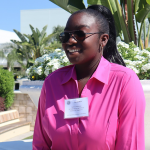
Yamira Patterson
Yamira Patterson is a junior at St. Petersburg High School in the International Baccalaureate Program. She is a student activist coordinator with Amnesty International USA and involved in various youth-led advocacy organizations. She is also the SPHS Black Students Association’s co-president and the SPHS Amnesty International Club president.

